Dear WesleyNexus Colleague:
The last several months of my life I have met and heard the stories of many people who are recovering from spiritual trauma inflicted upon them by their churches, parents, or teachers during their formative years. They have been—and many still are—in a painful, disorienting process of deconstructing their Christian faith and trying to reconstruct something new in its place. When I say “spiritual trauma” you might assume that I am speaking of a sex abuse scandal or physical abuse. But, that is not the 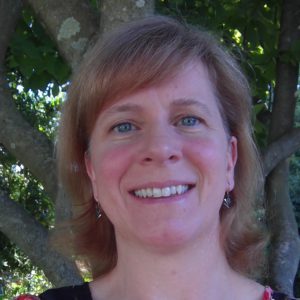 case. Instead, I am talking about the real psychological and emotional trauma that results when children are taught a kind of Christian faith that rejects science and other realities about our world; that casts God as the punitive tyrant who runs it all; and ends up relegating a “magical” Jesus to the same bin as unicorns, leprechauns, and Santa Claus. The stories they tell as adults are heartbreaking. In every case, their Christian faith fell apart either because the cognitive dissonance it caused almost drove them mad or because it simply didn’t function for the world we live in. Clearly, our preaching, teaching, and practice of the Christian faith is all for naught for the next generation if it lacks a sound theological foundation that is consonant with the realities of the world we live in, including especially the realities described by science.
case. Instead, I am talking about the real psychological and emotional trauma that results when children are taught a kind of Christian faith that rejects science and other realities about our world; that casts God as the punitive tyrant who runs it all; and ends up relegating a “magical” Jesus to the same bin as unicorns, leprechauns, and Santa Claus. The stories they tell as adults are heartbreaking. In every case, their Christian faith fell apart either because the cognitive dissonance it caused almost drove them mad or because it simply didn’t function for the world we live in. Clearly, our preaching, teaching, and practice of the Christian faith is all for naught for the next generation if it lacks a sound theological foundation that is consonant with the realities of the world we live in, including especially the realities described by science.
In his latest book, New Cosmic Story: Inside Our Awakening Universe, theologian John Haught asks what sense, if any, theology can make of living phenomena after Darwin, Einstein, and the still unknown discoveries about our cosmos. Those familiar with Haught’s work will recognize this intellectual ground. What distinguishes this book from Haught’s previous writings is his consideration of religious awareness and interiority themselves as emergent phenomena in the cosmos. Haught addresses two primary questions: what does the arrival of religion tell us about our universe, and what does our understanding of the cosmos as an unfinished drama tell us about religion? He concludes that while science illuminates the “outside” story of the universe, a full telling of the cosmic story must take into consideration the emergence of interiority and religious awareness. He ends up giving us a model for cognitive consonance between science and religion.
On September 22nd, John Haught gave a presentation on his new book at an event co-hosted by WesleyNexus and Potomac United Methodist Church. This issue takes a look at that event and also features a summary of Dr. Robert Miller’s discussion of the origins of YHWH in the archeological record and Dr Jennifer Wiseman’s talk at the American Scientific Affiliation’s recent meeting. We include an article from Psychology Today on whether religion contributes to wellness and, if so, how. We conclude with an article on centering prayer as a way of reflecting on sacred text. May these helpfully inform your faith and ministry.
Lastly, we are grateful for your participation in the work of WesleyNexus. We currently are planning our 6th annual Evolution Weekend event in Maryland (see “Save the Date” below). We ask you to consider making a tax-deductible donation in support of this event in hopes that we will again have the funds to livestream it for our friends and colleagues around the country.
God Bless,
Jennifer Secki Shields on behalf of
the WesleyNexus Board of Directors
*******************************
SAVE THE DATE!
Evolution Weekend
February 10, 2019
Baltimore-Washington Conference Center
Our 6th annual Evolution Weekend event will feature Dr. Connie Bertka and Dr. Briana Pobiner in a discussion on human origins. Stay tuned for details.
*********************************
John Haught’s Series of Presentations in the Washington region
Those of us in the Washington metropolitan region have enjoyed an extended visit with Dr. John F. Haught, distinguished emeritus professor of theology at Georgetown University, now living with his wife Evelyn in Florida, from where he continues his prolific writing. On Friday afternoon, the participants in the Science & Religion discussion group sponsored by the Washington Theological Consortium, enjoyed a 90 minute informal conversation with Jack over lunch, hosted by Abbot James Wiseman at the 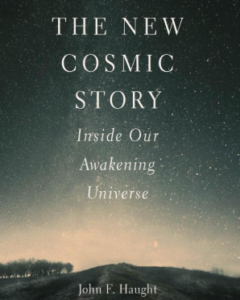 Benedictine Abbey near Catholic University. Focused on Haught’s new book The New Cosmic Story: Inside Our Awaking Universe, Jack shared with us the whole background of his own intellectual development that has led to this point in his thinking. Within the framework of the emerging academic thrust called “big history,” Jack pointed out that this entire secular enterprise omits any notion of subjectivity, and it thus represents a sterile scientific view, a meaningless materialistic flatland without any notion of human significance. He says, “Big History, following the methods of the physical sciences, characteristically pays little serious attention to religion and other things going on inside. My objective is to look inside the story of the universe without ignoring the outside. I am convinced that any big history that lives up to its name needs to correlate what is going on objectively with what is going on subjectively.” Haught’s claim that the universe itself exhibits a profound interiority provides us with an alternative perspective, with an avenue for each of us to make our own contribution to the world’s future. Given the Wesleyan affirmation of personal experience as a foundation for faith, this insight is of particular importance to us. On Saturday morning, over a period of two and a half hours, Jack made a formal presentation at Potomac United Methodist Church to an audience that included members of the wider community. Here the emphasis was on evolutionary science, inviting theology to entertain the thought that a transformative cosmic drama has already been going on in the universe long before human beings arrived on the scene. That we have the backing of a universe-in-the-making can give substance to our hopes, and energy to our moral aspirations. This is the significant way in which evolution helps Christian theology read the evangelical proclamation of a new creation with the spirit of adventure that it might not otherwise have. Finally, on Monday September 24, Dr. Haught spoke to a gathering of professors and interested lay people at the annual gathering of the faculties from the thirteen theological schools in the Washington Theological Consortium. Hosted by the John Leland Center for Theological Studies in Arlington, Virginia, more than one hundred from among the teaching faculties engaged with Haught around the notion of the awakening universe, an unfinished universe, that can be shaped by our own thoughts and actions. Out of the work of Jurgen Moltman (The Theology of Hope), Bernard Lonergan (Insight), Teilhard de Chardin (The Heart of Matter), and Alfred North Whitehead (Adventures of Ideas), Haught challenges us all to accept the implications of an open, expanding universal cosmic drama, and re-frame our theology in a way that provides meaning for people seeking their own purpose in the 21st century.
Benedictine Abbey near Catholic University. Focused on Haught’s new book The New Cosmic Story: Inside Our Awaking Universe, Jack shared with us the whole background of his own intellectual development that has led to this point in his thinking. Within the framework of the emerging academic thrust called “big history,” Jack pointed out that this entire secular enterprise omits any notion of subjectivity, and it thus represents a sterile scientific view, a meaningless materialistic flatland without any notion of human significance. He says, “Big History, following the methods of the physical sciences, characteristically pays little serious attention to religion and other things going on inside. My objective is to look inside the story of the universe without ignoring the outside. I am convinced that any big history that lives up to its name needs to correlate what is going on objectively with what is going on subjectively.” Haught’s claim that the universe itself exhibits a profound interiority provides us with an alternative perspective, with an avenue for each of us to make our own contribution to the world’s future. Given the Wesleyan affirmation of personal experience as a foundation for faith, this insight is of particular importance to us. On Saturday morning, over a period of two and a half hours, Jack made a formal presentation at Potomac United Methodist Church to an audience that included members of the wider community. Here the emphasis was on evolutionary science, inviting theology to entertain the thought that a transformative cosmic drama has already been going on in the universe long before human beings arrived on the scene. That we have the backing of a universe-in-the-making can give substance to our hopes, and energy to our moral aspirations. This is the significant way in which evolution helps Christian theology read the evangelical proclamation of a new creation with the spirit of adventure that it might not otherwise have. Finally, on Monday September 24, Dr. Haught spoke to a gathering of professors and interested lay people at the annual gathering of the faculties from the thirteen theological schools in the Washington Theological Consortium. Hosted by the John Leland Center for Theological Studies in Arlington, Virginia, more than one hundred from among the teaching faculties engaged with Haught around the notion of the awakening universe, an unfinished universe, that can be shaped by our own thoughts and actions. Out of the work of Jurgen Moltman (The Theology of Hope), Bernard Lonergan (Insight), Teilhard de Chardin (The Heart of Matter), and Alfred North Whitehead (Adventures of Ideas), Haught challenges us all to accept the implications of an open, expanding universal cosmic drama, and re-frame our theology in a way that provides meaning for people seeking their own purpose in the 21st century.
*********************************
The Origin of YHWH in pre-Israelite Culture – Dr. Robert Miller, Catholic University of America
On September 13, Dr. Robert J. Miller III, professor of Old Testament and Archaeology at the Catholic University of America, answered some intriguing questions during his lecture/presentation at the Jewish Community Center in Rockville, MD. The event was jointly sponsored by the Biblical Archaeology Society of Northern Virginia (BASONOVA) and the Biblical Archaeology Forum (BAF) in Maryland. These two organizations draw scholars from all around the Mid-Atlantic and provide the public with 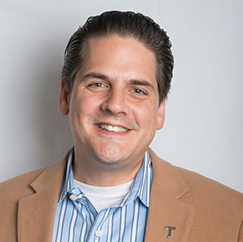 the latest scholarly archaeology being carried out in the Middle East. In this particular presentation, our colleague in the Science & Religion discussion groups here, Dr. Miller presented his findings on the fundamental question: Did Yahweh Come From Midian? Another way to address this question is: Was YHWH worshiped by non-Israelites? He began by referencing five biblical texts: Deut 33:2, Judg 5:4-5, Hab 3:3-7, Psalm 68:8-9, and Zech 9:14, all of which connect YHWH with place names to the south and east of Sinai. Our familiar accounts in Exodus make it clear that YHWH “met” Moses on the mountain, but Sinai was not YHWH’s dwelling place. In fact, as Dr. Muller pointed out, YHWH itself as a term is properly seen originally as a dwelling place in the southland (the land of Midian) rather than a proper name for God. In the ancient texts, the name YHWH never has any association with Egypt, and its pre-Hebrew associated names, (e.g. Ha-shem) were commonly in use to reference a deity shared by the Kenites, the Edomites, and the Midianites in the ninth century BCE. Dr. Miller shared his own evolving view that is being driven by the most recent archaeology that perhaps confirms claims that the terms common for this deity date as far back as the twelfth century BCE. Perhaps most compellingly, in our Bible Moses takes a Midianite wife, and although the common thought is that Jethro is thus identified as Moses’ father-in-law, there are two other persons named in our scriptures as Moses’ father-in-law – which means either that the names are conflated or Moses had three wives. In any case, this deity was not a mountain god, nor a sky god as were other deities, but was an ineffable deity, unnamed and unseen, and when the early Israelites (pre-dating the Hebrews as we later come to know them) joined the worship of Ha-shem, they found their place in the broad mix of peoples in the region far to the south and east of Sinai. Dr. Miller points out that there are now, for the first time in many years, new archaeological sites along the southern border with Saudi Arabia (no American teams allowed), that promise additional clues as to the ritual practices of these peoples. We are joining him in eager anticipation of this newly emerging understanding.
the latest scholarly archaeology being carried out in the Middle East. In this particular presentation, our colleague in the Science & Religion discussion groups here, Dr. Miller presented his findings on the fundamental question: Did Yahweh Come From Midian? Another way to address this question is: Was YHWH worshiped by non-Israelites? He began by referencing five biblical texts: Deut 33:2, Judg 5:4-5, Hab 3:3-7, Psalm 68:8-9, and Zech 9:14, all of which connect YHWH with place names to the south and east of Sinai. Our familiar accounts in Exodus make it clear that YHWH “met” Moses on the mountain, but Sinai was not YHWH’s dwelling place. In fact, as Dr. Muller pointed out, YHWH itself as a term is properly seen originally as a dwelling place in the southland (the land of Midian) rather than a proper name for God. In the ancient texts, the name YHWH never has any association with Egypt, and its pre-Hebrew associated names, (e.g. Ha-shem) were commonly in use to reference a deity shared by the Kenites, the Edomites, and the Midianites in the ninth century BCE. Dr. Miller shared his own evolving view that is being driven by the most recent archaeology that perhaps confirms claims that the terms common for this deity date as far back as the twelfth century BCE. Perhaps most compellingly, in our Bible Moses takes a Midianite wife, and although the common thought is that Jethro is thus identified as Moses’ father-in-law, there are two other persons named in our scriptures as Moses’ father-in-law – which means either that the names are conflated or Moses had three wives. In any case, this deity was not a mountain god, nor a sky god as were other deities, but was an ineffable deity, unnamed and unseen, and when the early Israelites (pre-dating the Hebrews as we later come to know them) joined the worship of Ha-shem, they found their place in the broad mix of peoples in the region far to the south and east of Sinai. Dr. Miller points out that there are now, for the first time in many years, new archaeological sites along the southern border with Saudi Arabia (no American teams allowed), that promise additional clues as to the ritual practices of these peoples. We are joining him in eager anticipation of this newly emerging understanding.
*********************************
Dr. Jennifer Wiseman presentation at the ASA National Capital Section
September 14
The meeting of the local chapter of the American Scientific Affiliation (ASA) on September 14 featured Dr. Jennifer Wiseman speaking on the latest research and discoveries of exoplanets. The event was hosted at the National Presbyterian Church in Washington DC. Dr. Jennifer Wiseman is an astronomer, author, and much-celebrated speaker. She studies star-forming regions of our galaxy using radio, optical, and infrared telescopes, and currently serves as the Senior Project Scientist for 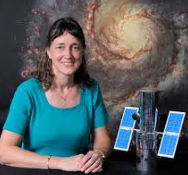 NASA’s Hubble Space Telescope. She also directs the Dialogue on Science, Ethics, and Religion (DoSER) program for the American Association for the Advancement of Science (AAAS). Jennifer continues as a member of the WesleyNexus Advisory Board. She received her B.S. in physics from MIT, discovering the comet Wiseman-Skiff in 1987, and continued her studies at Harvard, earning a Ph.D. in astronomy in 1995. Her talk (with slide illustrations) came to us in two parts: The first part featured a review of current astronomical research, and included images of the earth from the international space station and the Hubble telescope. She addressed phenomena such as binary black holes, gravitational waves, the discovery of exoplanets and the on-going formation of stars. Throughout these observations, Wiseman reminded us that we should focus our attention on some of the “big questions” that drive our cosmological research, and highlighted her interests as a Christian with questions such as “What does it mean to be human?”; “Can we find life elsewhere in the universe?”; or “Is there purpose in the story of cosmic evolution?” The second part of her talk dealt with questions, such as “What is the future and fate of the universe?”; “How do black holes shape the cosmos?”; and “Given the expanse of the universe, how can we feel significant?” Wiseman pointed out that all persons of faith should be eager to seriously ask such questions, and willing to reexamine the answers we learned in Sunday School. She cited some of the Scriptures that help her to understand the world of science in the context of her faith, such as I John 2:2 and Psalm 19:4. Most in attendance were ready to join Wiseman in her affirmation that science is a gift of God, and all of our questions ultimately lead to a deepening appreciation of the intersections of science and faith. Even when answers are unclear or ambiguous, we give thanks that we are blessed with minds that thrive on inquiry at both ends of the spectrum.
NASA’s Hubble Space Telescope. She also directs the Dialogue on Science, Ethics, and Religion (DoSER) program for the American Association for the Advancement of Science (AAAS). Jennifer continues as a member of the WesleyNexus Advisory Board. She received her B.S. in physics from MIT, discovering the comet Wiseman-Skiff in 1987, and continued her studies at Harvard, earning a Ph.D. in astronomy in 1995. Her talk (with slide illustrations) came to us in two parts: The first part featured a review of current astronomical research, and included images of the earth from the international space station and the Hubble telescope. She addressed phenomena such as binary black holes, gravitational waves, the discovery of exoplanets and the on-going formation of stars. Throughout these observations, Wiseman reminded us that we should focus our attention on some of the “big questions” that drive our cosmological research, and highlighted her interests as a Christian with questions such as “What does it mean to be human?”; “Can we find life elsewhere in the universe?”; or “Is there purpose in the story of cosmic evolution?” The second part of her talk dealt with questions, such as “What is the future and fate of the universe?”; “How do black holes shape the cosmos?”; and “Given the expanse of the universe, how can we feel significant?” Wiseman pointed out that all persons of faith should be eager to seriously ask such questions, and willing to reexamine the answers we learned in Sunday School. She cited some of the Scriptures that help her to understand the world of science in the context of her faith, such as I John 2:2 and Psalm 19:4. Most in attendance were ready to join Wiseman in her affirmation that science is a gift of God, and all of our questions ultimately lead to a deepening appreciation of the intersections of science and faith. Even when answers are unclear or ambiguous, we give thanks that we are blessed with minds that thrive on inquiry at both ends of the spectrum.
*********************************
Is Religion Good or Bad for Us? By David B. Feldman
In this article, Dr. David Feldman, professor of counseling psychology at Santa Clara University, asks the practical question if and how religion, broadly understood, promotes wellbeing for its adherents. Admitting that religion is both complex and diverse and means different things to different people, Feldman proposes that religion 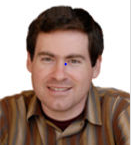 can influence wellbeing in three general areas. First, studies have shown that religiousness is associated with better health habits such as reduced smoking and alcohol use. Second, religion may provide its adherents with enhanced ability to handle stress — although the author points out that this can also be the opposite. Finally, religion provides its members with a network of social support. Not mentioned in the article but implicit in the discussion is that religion represents world views that are perceived as being generally true. How well religion promotes wellbeing may also be reflected in how well it presents a coherent understanding of the world. How sacred text and religious practice mesh with our scientifically informed society may also be a marker of wellbeing. The article can be found here:
can influence wellbeing in three general areas. First, studies have shown that religiousness is associated with better health habits such as reduced smoking and alcohol use. Second, religion may provide its adherents with enhanced ability to handle stress — although the author points out that this can also be the opposite. Finally, religion provides its members with a network of social support. Not mentioned in the article but implicit in the discussion is that religion represents world views that are perceived as being generally true. How well religion promotes wellbeing may also be reflected in how well it presents a coherent understanding of the world. How sacred text and religious practice mesh with our scientifically informed society may also be a marker of wellbeing. The article can be found here:
https://www.psychologytoday.com/ca/blog/supersurvivors/201809/is-religion-good-or-bad-us
*********************************
A Sacred Word Quiets my Mind to Pay Attention to God by Paul Bane
Paul Bane, an ordained Free Methodist pastor, presents centering prayer as a means to engage sacred texts. As defined by Father Thomas Keating “centering prayer is a 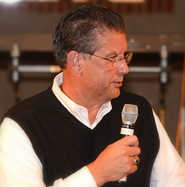 receptive method of silent prayer that prepares us to receive the gift of contemplative prayer, prayer in which we experience God’s presence within us, closer than breathing, closer than thinking, closer than consciousness itself.” This practice focuses on short, specific texts and lets them reverberate in one’s consciousness, revealing insights in an uncontrolled fashion. While not usually associated with Methodism, there is no reason that this practice cannot be fruitful within the Wesleyan tradition. More aesthetics than analysis, it can be a means of addressing scripture without generating conceptual conflicts with science.
receptive method of silent prayer that prepares us to receive the gift of contemplative prayer, prayer in which we experience God’s presence within us, closer than breathing, closer than thinking, closer than consciousness itself.” This practice focuses on short, specific texts and lets them reverberate in one’s consciousness, revealing insights in an uncontrolled fashion. While not usually associated with Methodism, there is no reason that this practice cannot be fruitful within the Wesleyan tradition. More aesthetics than analysis, it can be a means of addressing scripture without generating conceptual conflicts with science.
*********************************
The Inside Story: Consciousness, Nature, Transcendence
A transdisciplinary conference on Mind, Matter, Meaning and Mysticism
November 9-10, 2018
Sponsored by Villanova University, Department of Theology & Religious Studies, Connelly Chair in Christian Theology, the Augustinian Institute, Department of Philosophy, and Halloran Philanthropies.
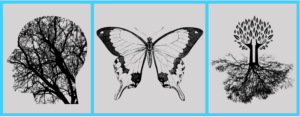 Descartes’ famous dictum—I think, therefore I am—gave rise to the modern distinction between mind and matter. But “the inside story” is more complex and thrilling—possibly uniting mind and matter, meaning and mysticism.
Descartes’ famous dictum—I think, therefore I am—gave rise to the modern distinction between mind and matter. But “the inside story” is more complex and thrilling—possibly uniting mind and matter, meaning and mysticism.
Join the in-depth exploration of consciousness, nature, and transcendence, as scientists, philosophers, and theologians ask, “What’s on the inside?” Keynote speakers include: Philip Clayton (WesleyNexus Advisory Board Member and author of numerous books related to science and religion, including The Predicament of Belief and Mind and Emergence), Ilia Delio (a long time friend of WesleyNexus, past member of the Washington Theological Consortium Science and Religion study group and author of Christ in Evolution), Timothy O’Connor (Distinguished Professor of Philosophy at Baylor University in Waco, Texas and author of Theism and Ultimate Explanation: The Necessary Shape of Contingency and Persons and Causes: The Metaphysics of Free Will ), and Terrence Deacon (neuroanthropologist, Professor of Biological Anthropology at the University of California, Berkeley and author of Incomplete Nature: How Mind Emerged from Matter).
More information on this program can be found here:
https://www1.villanova.edu/villanova/artsci/theology/news_events/inside-story-conference/about.html
*********************************
The Science of Human Origins and Religious Traditions: Challenges and Opportunities
November 30, 2018, 4:00-5:00 pm
Hall of Human Origins, Smithsonian Institution, Washington, DC
Connie Bertka & Maynard Moore, Panelists
